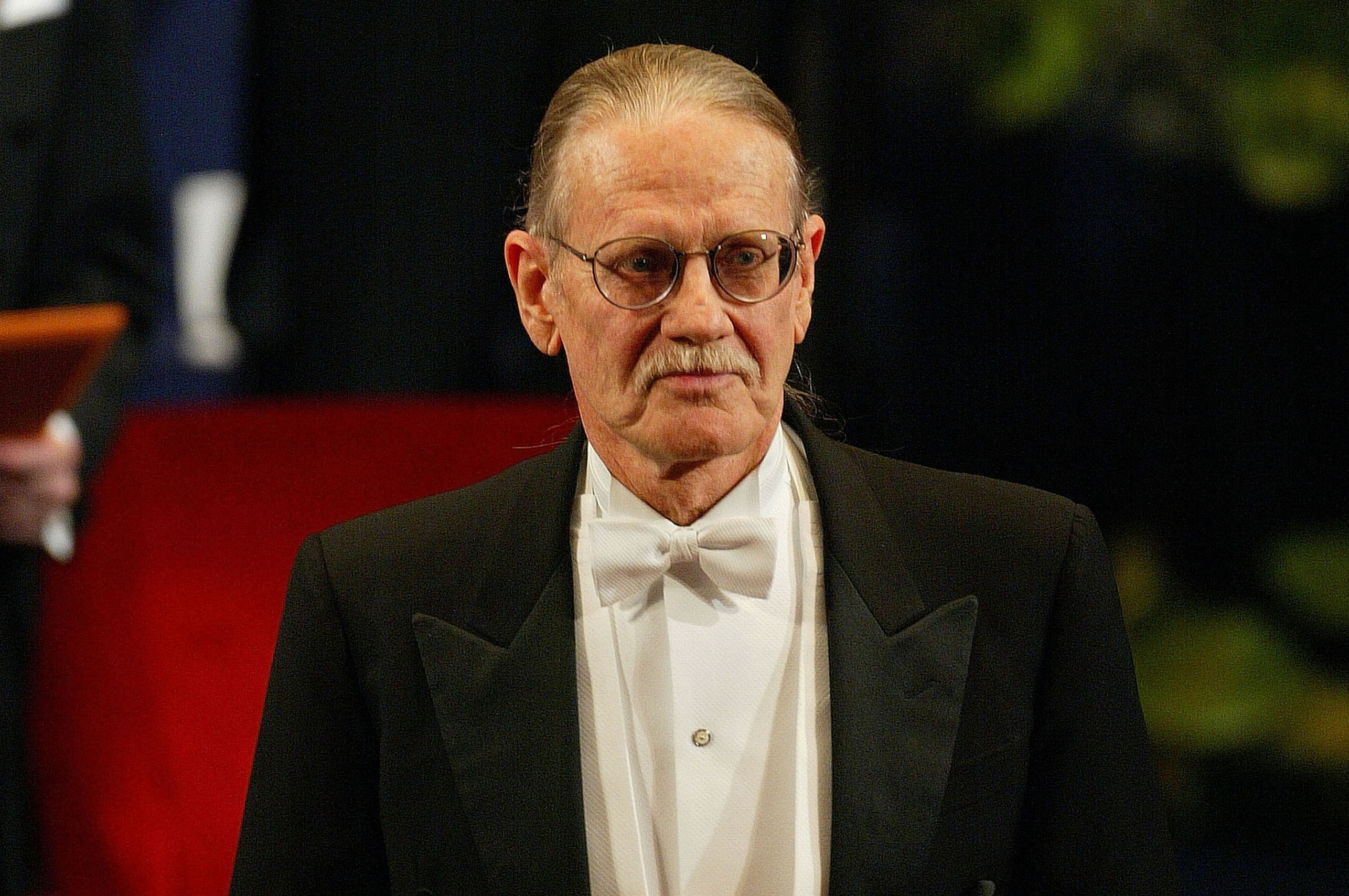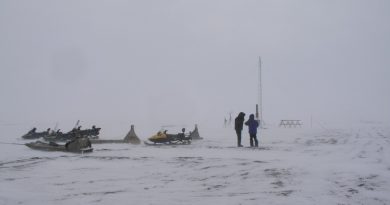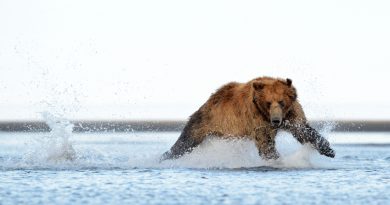Alaska university names economics lab after Nobel laureate Vernon Smith

Nobel laureate economist Vernon Smith spent three years at the University of Alaska Anchorage late in his career, and UAA has now named the centerpiece of its experimental economics program after him.
Smith was a C student in high school, with sloppy handwriting. No one else in his family had been to college. He grew up on a farm in Kansas and helped build B-29 bombers as a teenager during World War II.
But Smith worked hard at a local community college, passed the entrance exam at Cal Tech and started reading about economics.
“I was really amazed, here are the social sciences, you could do social science in a rigorous way,” Smith said.
New tools for complex systems
Smith taught at universities around the country and developed methods for conducting laboratory experiments in economics. Essentially, he created tools that didn’t exist before that have allowed for a much greater understanding of how complex systems and markets are likely to behave in the real world.
“So you can do experiments to answer policy questions,” Smith said. “But the first job is to understand that world.”
For Smith, understanding and getting to know Alaska started in the mid-1960s, when he visited for seven weeks of camping and fishing.
“You know, kind of fell in love with Alaska on that summer trip,” Smith said.
An offer… and a Nobel prize
Smith returned over the years, and he was visiting Anchorage when – decades later in the early 2000s – a UAA professor asked if he’d be interested in being the first ever Rasmuson Chair of Economics. Smith agreed, but then something happened: That fall he won the Nobel in Economics.
Of course, that was great for Smith. But it worried UAA.
“Well they thought I wouldn’t come, thought, now, you know, ‘It’s probably off because he’ll be so busy,’ but I didn’t- I still wanted to come,” Smith said. “It was something I wanted to do, and I figured I’d just make time for it.”
So with Nobel prize in hand, Smith came to UAA and laid the groundwork for the experimental economics program and the lab there that is now named after him.
A model for resource-rich states
Over the years, with his connection to Alaska, Smith also watched the state’s own grand experiment play out, as it used its oil wealth to create a permanent fund. He said the fund was a great idea, and a really great model for other resource-rich states or countries.
But Smith says 100 percent of that oil tax revenue should’ve gone to the fund, with an income tax to pay for state government. He says Alaskans have so far gotten a “free ride.”
If there were a more direct connection between Alaskans’ income and how government is funded, Smith says more people would be more engaged with policy decisions and government officials.
“I mean, people think, ‘What difference does it make? You just put it in one pocket and take it out of the other,’” Smith said. “But it goes through some sort of a ballot process, you see, so that governments don’t get access to that free. They’ve got to convince the people that they’re willing to pay taxes in order to support their programs. It’s a big difference.”
At this point, years down the road, Smith says an income tax will be a hard sell. And with the Legislature set to again take up the issue, it could be another Alaska economics experiment still playing out.
Related stories from around the North:
Canada: Arctic offshore drilling too dangerous: Trudeau, Radio Canada International
Finland: U.S. pullout from Paris climate pact condemned by Finnish leaders, Yle News
Germany: Cheap oil from the Arctic? Fake news, says climate economist Kemfert, blog by Irene Quaile, Deutsche Welle
Norway: Norway’s oil fund reaches $1 trillion, The Independent Barents Observer
Russia: Moratorium on Arctic offshore licenses will continue, says Russian minister, The Independent Barents Observer
Sweden: Sweden’s climate minister : U.S. withdrawal from Paris sends a bad signal, Radio Sweden
United States: Oil & gas company says Alaska’s limited tax-credit payments thwarting drilling plans, Alaska Dispatch News



